Female talent continues to rise to the top of the food industry, yet gender diversity is still far from perfect. Our new power list series seeks to shine a light on the high-profile women in key sectors, and explore the issues at play
Last autumn marked a high watermark in the ascent of Britain’s discounters. Aldi finally broke the long-held dominance of the ‘big four’ supermarkets. Much as Aldi might argue its “discounter DNA” means it will never “join that club”, the figures show it overtook Morrisons in terms of market share.
But while they now rival the traditional big four on financials, are they doing the same on gender equality? Not when it comes to representation of women in top paid roles, according to gender pay gap reports covering 2021/22, the latest year on which all supermarkets have reported. At the big four, women make up an average 40.8% of employees in the top pay quartile. By comparison, at Aldi women make up just 33% of the top pay quartile and at Lidl GB it’s 34.2%.
What’s more, the average (mean) difference in hourly pay for men and women across the business is 10.5% at Lidl and 9.8% at Aldi. That’s a cut above the average 9% across the big four (8.8% at Tesco, 8.3% at Sainsbury’s, 8% at Asda and 10.8% at Morrisons).
While the lower number of women in top jobs at discounters may seem marginal, Denise Wilson, CEO of FTSE Women Leaders, argues it is “significant”.
“The average progress in the FTSE350 is around 2.5% to 3% [a year],” she explains. “So a 6% difference is three years behind.”
Wilson believes the discrepancy is largely down to supermarkets facing a greater level of scrutiny as publicly listed companies. Since 2010, the FTSE Women Leaders review has reported annually on the percentage of women in leadership at all FTSE 350 listed companies, while setting targets for progress.
“When I rank companies in the FTSE 100 at number 98, 99, 100 – the next year they’ve done something about it, because they don’t want that. But those companies that aren’t caught by this, nobody is looking at that. There’s no lens on it.”
Tesco and Sainsbury’s are clearly under this microscope. As was Morrisons until it was bought by a private consortium in 2021. Of the big four, only Asda has so far escaped the scrutiny of the annual review. And like the discounters, Asda is behind on women in top paid roles. They occupy 38.2% of Asda’s top jobs, a figure that was flat year on year in the supermarket’s latest report out this week.
While the discounters do report on their gender pay gap to the government, so do 12,000 other companies, meaning the scrutiny they receive is hardly invasive.
But it’s important to put their figures into perspective. In the context of the wider economy, none of the retailers’ numbers look too bad, says Anna Falth, UN women’s head of Women’s Empowerment Principles, of which both Lidl and Aldi are signatories. “You have certain sectors where there are very few women – less than 30% – in management and on the board,” she says.
And that’s just looking at it from a UK perspective. One explanation for Lidl and Aldi performing worse on gender diversity than the major supermarkets could be their German ownership, suggests Tea Colaianni, founder of Diversity in Retail.
Colaianni sees gender equality as an area in which British businesses are relatively advanced. Wilson also believes the UK is“a step or two, if not more, ahead of most other countries on this topic”, while she reports “Germany has really struggled with their management culture.”
Perhaps unsurprisingly, Lidl rejects this point about its ownership – pointing to its London head office for its GB business and a high proportion of British suppliers.
“Our mean gender pay gap is well below the UK average, and we are proud to have closed our median pay gap completely,” says a spokeswoman. “Whilst we have made positive strides over the years through the introduction of varying initiatives … we recognise there is still more to do.”
Meanwhile, Aldi says it has a number of initiatives to improve inclusivity of women, such as a female mentoring programme, menopause support and extended maternity leave. It argues comparisons with competitors don’t take into account its slimmer management structure, meaning it has fewer senior roles.
“Nobody is looking at these companies. There’s no lens on it”
However John Amaechi, a diversity, equity and inclusion advisor who has worked with a number of major supermarkets, believes there are some simple steps all businesses can take to tackle the perpetuation of male leadership – regardless of size.
For example, “people like to have optional criteria” in job specifications, he says. But they are a “great way” for an interviewing panel – most likely predominantly male – to unconsciously ensure “that any non-traditional candidate doesn’t make it through”.
“Men have a propensity to put in ‘yes’ to optional criteria that they don’t have,” says Amaechi. “If a criteria is important, make it mandatory. If it’s not important or it can be learned quickly, remove it, and the number of people who make it through to the next process will be proportionately more diverse.”
Another is to relax requirements for experience, which serve to perpetuate the status quo. “When you look at the data, the number of years’ experience has incredibly low validity in predicting performance,” he says.
“It’s not about whether you hit the ground running, it’s about whether you’re fast enough in two years’ time. So, get rid of that, and suddenly the number of candidates who can get through to interview is much more proportionate, because we know women won’t have that experience necessarily.”
As for Lidl and Aldi, Colaianni says it is more important to look at their progress than numbers in isolation. “What I’m more interested in is the trends over time,” she says. “Are they improving, or have they plateaued?”
Indeed, both companies are making progress. In 2017-18, women made up 30% of the top pay quartile at Aldi and 30.3% at Lidl.
For some though, it’s a rate of change that needs some acceleration.

Julie Ashfield
Buying MD, Aldi
Julie Ashfield is as close as you can get to a discounter household name, having appeared in Channel 4’s recent series ‘Aldi’s Next Big Thing’.
Of course, to those in the industry, Ashfield was already well-known, having been MD of buying since 2017. She is credited with Aldi’s reputation for quality as well as value. She also led Aldi to spend eight years as the UK’s best supermarket according to a supplier poll.
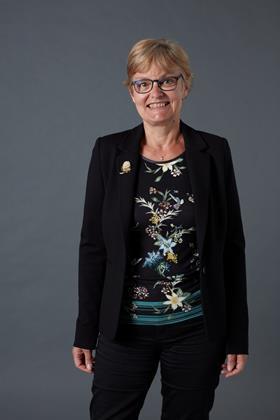
Nan Gibson
Chief HR officer, Lidl
As Lidl’s chief HR officer since 2016, Gibson is at the heart of the race to expand – one that is ultimately reliant on constant recruitment and training.
In October, Gibson launched a hunt for 1,000 new hourly-paid roles, simultaneously boosting those hourly rates.
In distribution, where competition for labour is particularly fierce, she announced recruitment open days at which successful candidates were offered a job on the spot.

Ruth Doyle
MD of HR, Aldi
Doyle set up Aldi’s national HR department, a team that went on to win The Grocer’s Employer of the Year award in 2022. Her responsibilities are vast, combining regional operations and national strategic responsibilities, while also running Aldi’s Bolton region – the biggest in the business with 110 stores.
She shares joint responsibility for Aldi’s national store strategy in the UK and Ireland, overseeing its people agenda.

Anastassia Kostroub
Procurement and facility management director, Lidl
Kostroub is a key figure at Lidl: responsible for procurement and facility management across Lidl GB’s 950 stores and 13 regional distribution centres.
Lidl’s rapid growth means she has overseen the refit of over 350 stores and 10 RDCs in the past eight years alone. She also led Lidl’s £100m ‘Get Fresh’ programme to optimise layouts and create more store space for fresh produce. She originally joined Lidl as project manager in 2010.
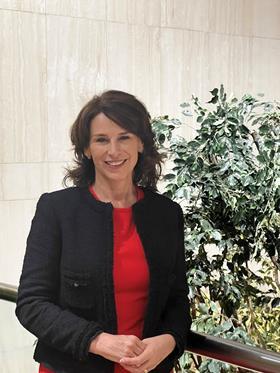
Louise Dhaliwal
IT director, Iceland
As IT director Dhaliwal manages a team of 120 employees responsible for the development, implementation, security and maintenance of all the technology that services Iceland’s 1,000 stores, five depots and its head office.
Innovation is constant, with Dhaliwal implementing 230 projects in 2022 alone. Past initiatives have included Iceland’s first ever UK gift card programme in 2021. Another 350 are in the pipeline for this year.

Allison Green
Group people director, B&M
B&M’s growth keeps Green busy – in its 2021 financial year alone, she led on the creation of 7,200 new jobs.
And things don’t look like quietening down, as B&M prepares to open another 250 stores.
It requires a relentless recruitment and training programme, from entry-level store positions to fast-track graduate programmes and senior executives. Green’s role also covers Heron Foods and international divisions.

Amanda Jones
Retail director, Wilko
Poached from the Post Office last year, where she was retail and franchise network director, Jones has the job of driving sales and profit from Wilko’s 400 stores, many in high street locations challenged by declining footfall.
Since joining, her focus has included making shops easier to navigate, showcasing Wilko’s value messages and optimising its points of difference from other discounters. She leads 12,000 team members.
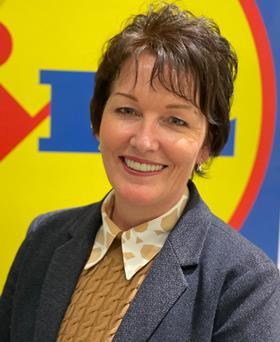
Jennifer Davidson
Regional director, Lidl
As regional director for Lidl GB’s Northfleet region, Davidson is responsible for over 400 warehouse staff and over 45 stores across the south east, spanning from Ilford in east London to Dover.
She has recently accepted a new role as regional director for Luton, which is set to be Lidl’s largest warehouse globally when it opens later this year. When she takes the post, Davidson will oversee more than 1,200 staff.

Kara Greatorex
MD of IT/e-commerce, Aldi
Greatorex began her career at Aldi as a buying director in 2009, but over the years she has made the transition to IT and e-commerce, becoming MD of the department in 2022.
And while Aldi has recently shelved home delivery of Specialbuys and beers and wines, it is not resting when it comes to technology. Its click & collect grocery service is ongoing, and last year it opened its first checkout-free store.
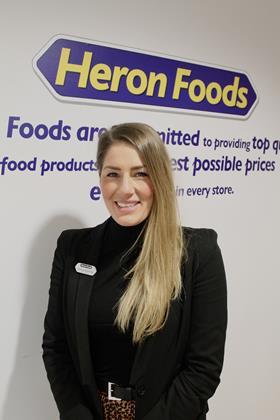
Rebecca Stanton
Head of buying, marketing & merchandising, Heron Foods
Stanton leads a team of about 30 staff, who are responsible for everything from buying to visual merchandising and marketing.
Her remit covers “all developments in stores”, including the modernisation and refit programme across its growing estate, which currently stands at around 300 branches.
Most recently, Stanton and her team came up with a frozen Christmas meal for four for £15.
A MESSAGE FROM THE SPONSOR
Our first female power list focuses solely on the discounters. As the cost of living crisis continues to bite, it has been widely publicised that many shoppers are turning to more affordable options, with Lidl and Aldi in particular seeing huge growth in 2022. But is their gender diversity growing too?
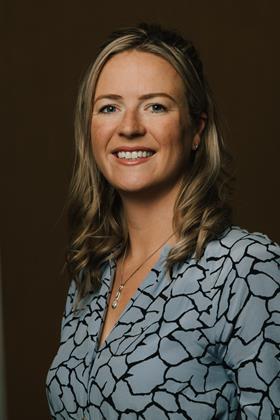
The good news is this shortlist includes fresh female talent – a positive sign things are moving in the right direction at the discounters, which have previously been accused of lagging behind.
Straying from the stereotypes of female leadership occupying predominantly HR roles, we’re increasingly seeing ‘Power Women’ leading the way in procurement, buying and technology roles. Iceland, B&M and Poundland all champion senior female leadership in these areas.
Of course, it would be remiss to overlook HR, which forms the backbone of employee growth, development, and ultimately, company performance.
Lidl and Aldi set the tone here, having appointed both their senior HR leaders over six years ago.
It is so exciting to think about the impact that grocery retailers, and particularly the discounters, can have on driving greater gender diversity at a senior level.
It is no secret that diversity drives better decision-making and more successful teams and companies. So, focusing on equality and diversity isn’t just the right thing to do morally, but the right thing to do to drive commercial advantage.
Emily Deer, Director at Newton Europe



He’s responsible for covering the discounters and retail property, and for commissioning and editing The Grocer’s analysis features. He has over 20 years' experience as a journalist, during which his by line has appeared regularly in a range of national newspapers.
Follow Steve on Twitter: @Steve_Farrell_ View full Profile







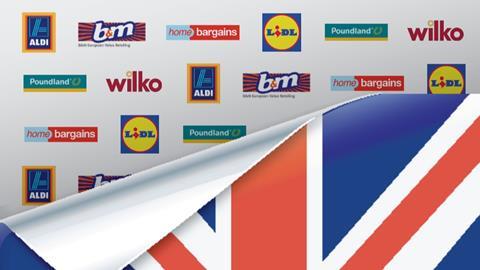








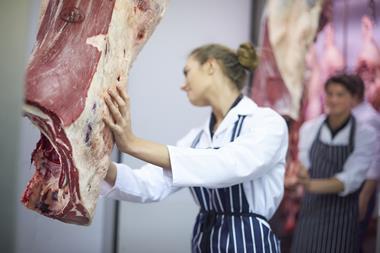











No comments yet